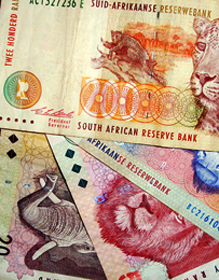
She continued:
We set out to expose and campaign against those who abuse public resources. Our first call to action was for more people to report corruption and, 10 months later, more than 2 800 reports have been received.
This positive response indicates that people are not resigned to accepting corruption as a way of life and are willing to expose it.
While the reports to CW are a small part of the story of corruption in South Africa, they do indicate certain trends and hotspots.
People who reported to CW this year were mostly from poor and marginalised communities in small towns, villages and townships.
They see the effects of corruption in their daily lives and have limited access to channels that facilitate their lives out of difficult situations.
They regard all forms of unfairness and injustice as corruption.
As such, out of the 2 800 cases reported, only 1 130 fell within CW’s scope, which is to probe and fight against the misuse of public goods and services by those in the public and private sectors, and abuse of power by those in public office who effectively are paid by the people of South Africa.
Many complained to us about issues outside of our scope such as labour disputes, business fraud and inadequate or lack of service delivery.
Of those who informed us about the misuse of public resources for private gain, the stories were far from the multimillion-rand stories that usually capture news headlines.
Yet, they reflected the impact that corruption has in limiting and destroying people’s lives.
Corruption at school levels ranked high among our reports and the cases reflected deeply ingrained forms of corruption that undermine and marginalise communities.
Take report 185 about a school in Phalaborwa, Limpopo.
The whistle blower wrote: “The principal gives tenders to the chairperson of the SGB (school governing body) to pave and do other building jobs at the school and she would share the money charged with the chairperson … The principal gives the deputy chairperson, who is a photographer, the tender to take passport photos of the learners at the school.
“The principal herself often tenders from the school, where she supplies the school with curtains from her company and buys cleaning materials for the school from the company owned by her close relative, and she also has shares at the company.
“She has hired her sister’s son at the school as a clerk who is paid by the school even though there is a clerk who is paid by the state. She claims from the school for transport to bogus workshops which she actually had not attended.”
We probed a school this year in which teachers were reported to be stealing food and stationery provided by the education department.
The whistle blowers reported that every month, 12 bags of 50kg mealie meal are delivered to the school and, of that, only two bags go to the schoolchildren.
When the case was reported to the education department, the response was that not much could be done due to the high cost of establishing an official investigation.
More weight will be thrown on such cases next year as CW intensifies its focus on corruption in schools and in small towns. People are speaking out but are not optimistic about the political will to address the problem.
Furthermore, the under-enforced Prevention and Combating of Corrupt Activities Act contributes to negative perceptions that even the laws are not the answer.
Despite clear evidence of significant and growing levels of corruption, the volume of reports and prosecutions for contraventions of the act remain low.
What is disturbing is the failure to enforce Section 34 of the act – the provision that obliges those in positions of authority to report knowledge or suspicion of corrupt activities to the police.
We can increase the “costs of corruption” by consistently prosecuting both offenders and people who know of corrupt activities but keep quiet.
We have also learnt that by exposing some cases, more information is volunteered, as if people were waiting for the moment.
The corrupt also saw CW as a credible channel for reporting corruption.
It is unsurprising that South Africa moved from 64th to 69th place on Transparency International’s Corruption Perceptions Index.
The evidence of corruption in the various sectors of government and in the business environment illustrates the deplorable truth that no one citizen is immune to the strong effects of corruption.
It affects each and every South African on a very personal level.

